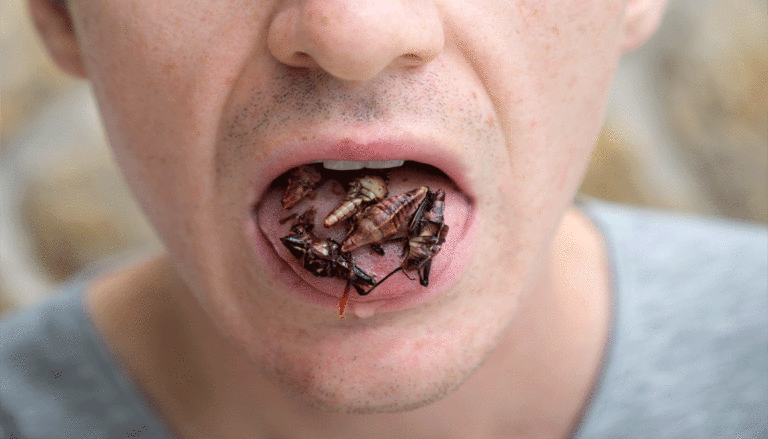Going green could mean going buggy. To alter worldwide eating habits and fight climate change, a landmark decision has paved the way for alternative sources of protein – namely insects. Is a bug burger in your future?
Landmark decision could put a bug in your burger
Scientists and environmental advocates say that the massive raising of livestock that produces pork, beef, poultry, and even farmed fish, for dinner plates around the world, is a major factor contributing to the emission of greenhouse gases that are fueling climate change. Add to that, an increasing population will only exponentially worsen the problem with greater food needs throughout the globe.
A landmark decision was made four months ago that is aimed at providing alternative protein-rich sources that meet nutritional needs while significantly diminishing the harmful impact on the environment that can’t be sustained amid growing populations.
The European Union approved insects for human consumption, Bloomberg reported. The decision is considered a victory not only in Europe but the world over.
US was already on board
And many may not even realize that a similar decision was made in the US years ago. Earlier this year, the Food and Drug Administration (FDA) approved insects for pet foods, with well-known brands such as Purina, using bugs for their products, according to NPR.
People find bugs yummy the world over
Although Americans haven’t quite caught on to the delicacy of eating insects, 80% of the world’s population throughout Asia, Africa, and Latin America dine on insects, according to PBS.
Bugs are healthier than meat, scientists say
Comparatively, insect protein is generally healthier than meat, say scientists.
For example, a six-ounce serving of crickets has 60% less saturated fat and double the amount of vitamin B-12 as an equal amount of ground beef.
Most people see insects as pass and dangerous, but in terms of disease, on the whole, and mosquitoes aside, diseases don’t jump from insects to humans in the way they do animals such as pigs, cows, and birds, says entomologist Brian Fisher from the California Academy of sciences.
“There is almost zero chance that any disease that affects an insect could actually impact a human after it’s cooked,” says Fisher.
A bug in your burger or centipede French fries?
If you’re about to gag right now, relax and take a breath. The meat replacement in your burgers may not have gone buggy just yet.
Instead, what the EU has in mind in the interim is to use insects to provide protein feed for the livestock we eat.
Currently, farmers fatten their livestock using corn or soy feeds, which are environmentally costly.
As previously mentioned, the US is already doing this, but in a limited capacity. Advocates want the FDA to adopt changes to expand the practice.





